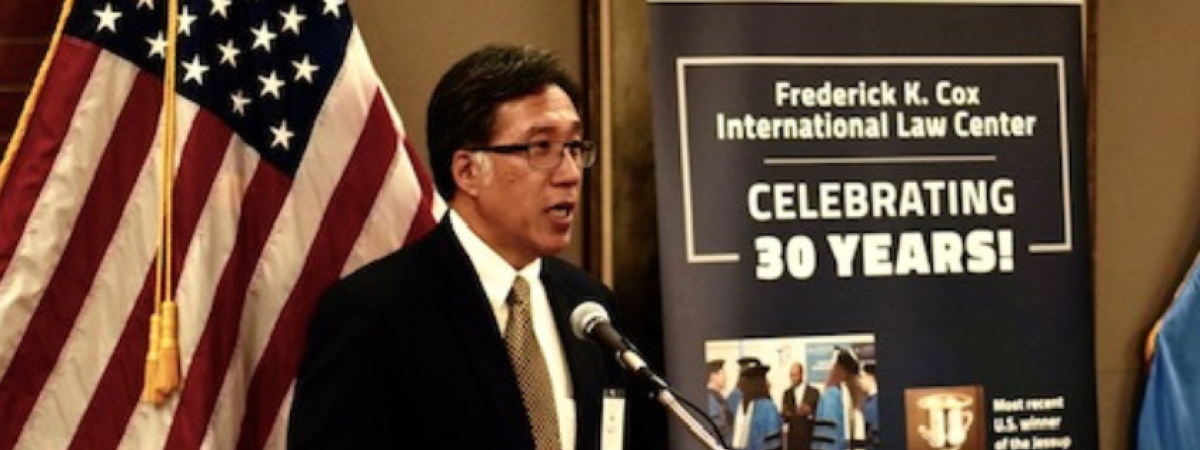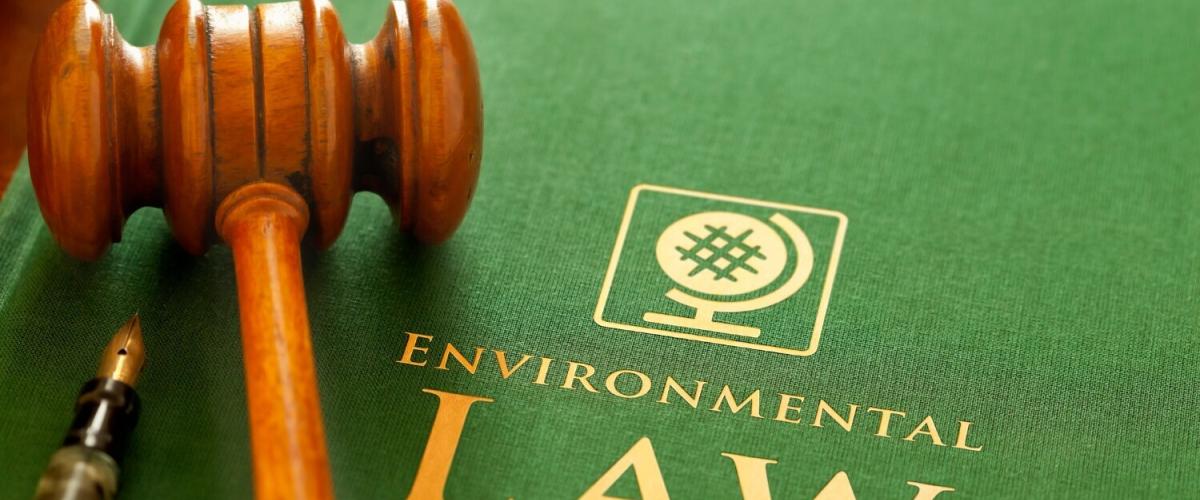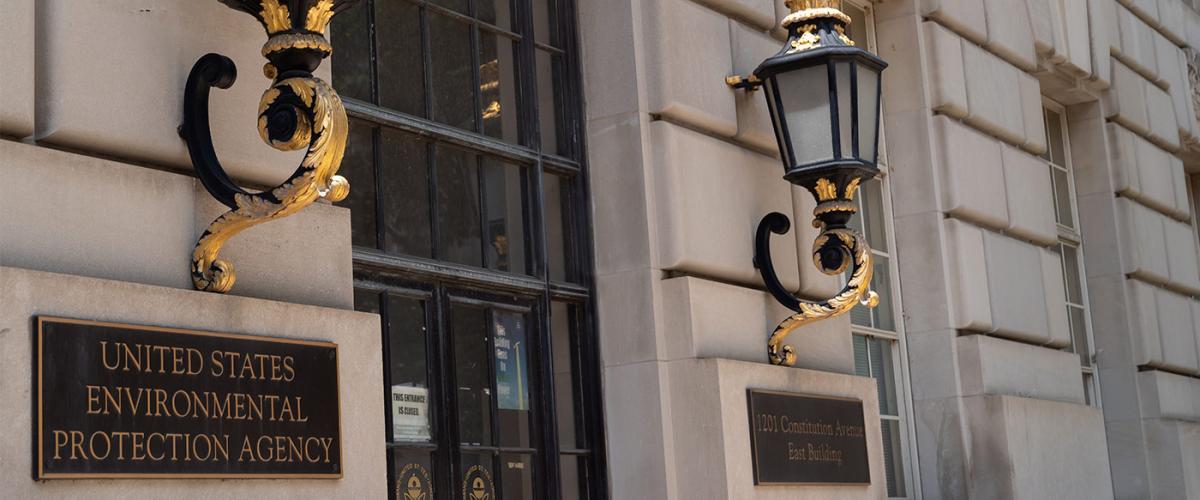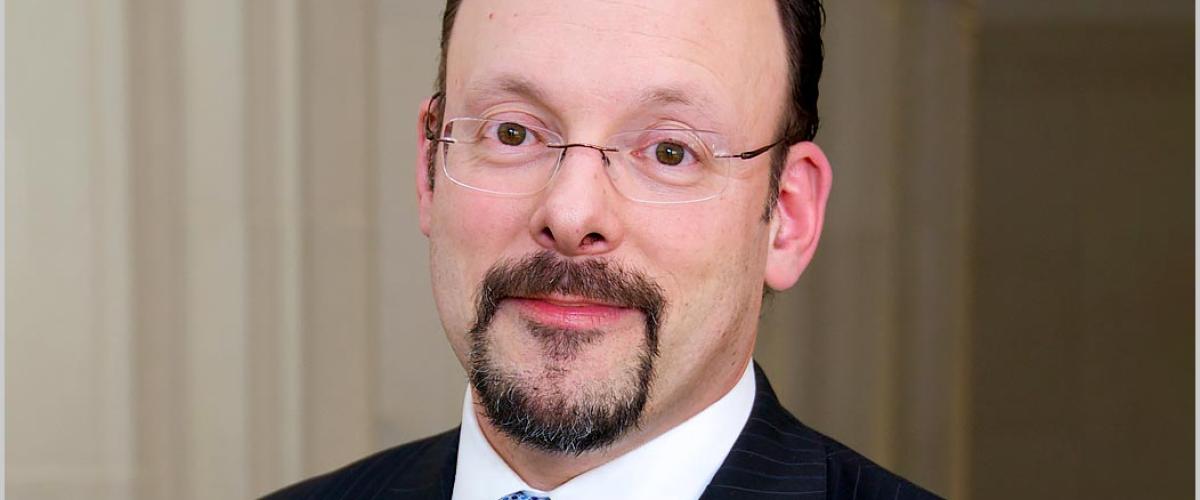On Sept. 28-29, two dozen of the foremost experts in climate change and international law gathered at Woodland Hall at the Cleveland Botanical Garden to debate how to respond to the increasing threat of global climate change. The event was organized by Case Western Reserve University School of Law’s Cox International Law Center and the school’s Burke Center for Environmental Law, and co-sponsored by the American Branch of the International Law Association.
Pictured above, alumnus Jim Chen (LAW ‘91), former vice president and counsel of Tesla and Rivian Motors, kicked things off as the Thursday evening dinner speaker with remarks about the need to safeguard human rights in the production of electric car batteries. Chen discussed a number of possible approaches to incentivize electric automobile manufacturers to adopt standards to protect the environment and human rights in their supply chain.
In his Friday morning welcome address, co-dean Michael Scharf set the stage by discussing how 2023 has seen some of the worst environmental disasters in our lifetime. "From continental-wide forest fires in Canada to floods of biblical dimension in Libya, climate change has been a daily fixture in the news this year," he said. "In this context, I am pleased that CWRU School of Law was able to assemble such a prestigious group of experts to debate some of the most important questions facing international law: How should the international community enforce the newly recognized human right to a healthy environment? Is “ecocide” a viable international crime? Are environmental migrants entitled to refugee status? And can corporations be sued for climate change?"
John Knox, history’s first UN Special Rapporteur for Human Rights and the Environment, delivered the morning keynote address on Friday. He provided an insider’s view on how the new UN Resolution on the Human Right to a Healthy Environment came about, evolved during negotiations and ultimately gained the unanimous support of the General Assembly.
Following Knox’s remarks, a panel of experts explored how the international community can implement and enforce the new UN Resolution, including using tax laws to incentivize compliance.
The second panel explored the possible prosecution of the crime of ecocide at the national and international level. Milena Sterio of Cleveland State described the fifty year history of attempts to recognize ecocide as a separate international crime. While environmental destruction can be prosecuted as a war crime, Leila Sadat, the former Special Advisor to the ICC Prosecutor, opined that peacetime ecocide is a phenomenon, not a crime. The experts then debated whether attacks against the environment resulting in human casualties during peacetime could be prosecuted as a crime against humanity under existing law.
Expanding on that discussion, the Honorable Chile Eboe-Osuji, former President of the International Criminal Court, provided the Friday luncheon speech about the individual right to peace and its relation to attacks against the environment during an act of aggression.
The third panel focused on the evolving law relating to climate displacement. With sea levels rising and countries subject to increased draughts, fires and floods, so called “climate refugees” have been pouring across borders. The panelists discussed whether “refugee” is the right term, what triggers protection of such displaced individuals, does international human rights law or international environmental law take precedence and what is the role for domestic law.
For litigators, the high point of the conference was the fourth panel on climate change litigation against corporations. To date, there have been 300 cases brought against companies for climate change around the world. Almost all of them have failed. Obstacles include standing, the Political Question Doctrine, Forum Non Conveniens, the First Amendment and causation. But the panelists acknowledged that the recent Dutch Shell case decided by the Hague District Court could be a game-changer, paving the way for successful global warming suits across the world.
The Court ordered Shell to reduce its worldwide CO2 emissions by 45 percent by 2030. All eyes are on the Dutch courts as they consider the appeal of the case.
Closing remarks were delivered by alum Austin Fragomen (LAW ‘68), Chairman of the Business Advisory Group on Migration of the Global Forum on Migration and Development. Fragomen, the founder of the Case Western Reserve Journal of International Law, told the participants that the World Bank estimates that 216 million people will be displaced by climate change by 2050. "Vulnerable populations need a comprehensive solution that spells out the rights and benefits of climate migrants," he said. As a positive first step, Fragomen described how the non-binding Global Compact on Migration calls on countries to set goals concerning immigration pathways for climate migrants, and to report on progress on various aspects of climate migration.
Articles by the conference speakers will be published in Volume 56 of the Case Western Reserve Journal of International Law in May 2024. The archived videotape of the conference is available for viewing anytime.





